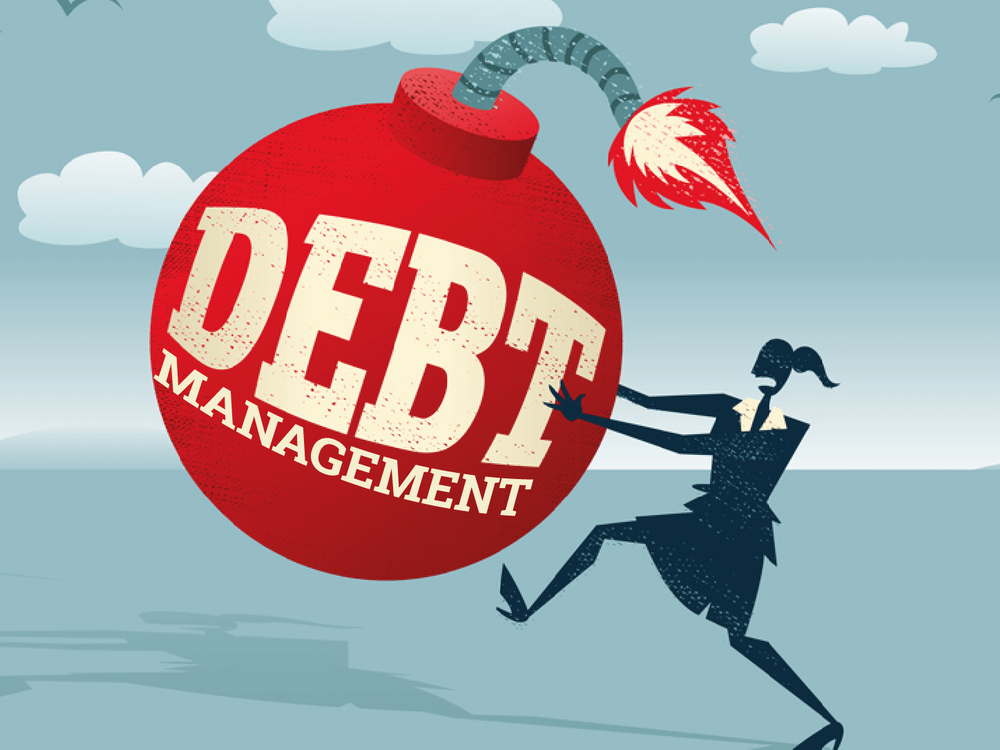Specialist Tips and Methods for Executing a Successful Financial Debt Administration Plan
When it comes to navigating the intricacies of debt monitoring, having a well-thought-out strategy is crucial for accomplishing economic stability. From examining your current economic standing to negotiating with lenders, each action plays a pivotal function in forming a successful debt administration strategy.
Analyzing Your Existing Financial Situation
Prior to beginning on a debt management strategy, it is crucial to thoroughly review your existing financial standing. Recognizing your economic scenario is the foundational action towards effectively taking care of and lowering your financial debt.

Establishing a Realistic Budget Plan
Recognizing your current monetary circumstance prepares for developing a sensible spending plan that aligns with your financial obligation monitoring goals and financial abilities. When producing a spending plan, it's important to precisely track your revenue, expenses, and debt obligations. Start by providing all incomes, consisting of wages, bonus offers, and any additional profits. Next off, describe your dealt with expenses such as rental fee or home mortgage payments, utilities, insurance coverage, and finance settlements. Variable expenditures like groceries, amusement, and transportation should also be made up. By classifying your costs, you can recognize locations where you might need to cut down to liberate funds for financial debt settlement.

Focusing On and Taking On Debts
To properly regain control of your finances and work towards financial stability, prioritizing and tackling your financial obligations is a crucial action in your financial obligation monitoring strategy. Start by providing all your financial obligations, consisting of debt cards, car loans, and any type of various other superior equilibriums. Recognize high-interest financial obligations that are costing you the most money and prioritize paying them off first. By focusing on these high-interest financial obligations, you can save cash in the future and decrease the total quantity you owe.
After determining your high-interest debts, take into consideration utilizing techniques like the debt snowball or financial obligation avalanche method to pay them off methodically. The financial obligation snowball method includes paying off the tiniest debts initially, while the debt avalanche approach prioritizes financial debts with the highest rate of interest. Pick the technique that aligns ideal with your financial objectives and motivates you to maintain making progress.
Furthermore, take into consideration discussing with creditors for lower rates of interest or establishing a payment strategy if you're struggling to satisfy your current responsibilities. Seeking help from a credit rating therapist or financial consultant can also supply valuable understandings and advice on exactly visit this page how to properly tackle your debts - debt management plan services. By focusing on and resolving your financial debts strategically, you can pave the means in the direction of a debt-free future and enhanced economic well-being
Working Out With Lenders
When taking part in financial debt management, bargaining with financial institutions is an important action towards finding mutually valuable solutions for financial obligation payment. Open up interaction with lenders can cause modified repayment plans, decreased rate of interest rates, and even settlement offers. Prior to launching arrangements, it is important to have a clear understanding of your financial scenario, including your revenue, expenditures, and the overall amount of financial obligation owed. This information will not just aid you make sensible offers however likewise demonstrate to creditors that you are devoted to resolving the debt.

Structure Healthy Monetary Routines
Incorporating constant budgeting methods is essential for cultivating healthy and balanced economic practices. Budgeting enables people to track their revenue and expenses, enabling them to make enlightened decisions regarding their economic top priorities. Setting certain monetary goals, such as conserving for emergency situations or retired life, can provide a clear roadmap for managing money efficiently.
One more trick facet of structure healthy financial practices is living within one's means. This includes investing much less than what is gained and staying clear of unneeded debt. Adopting a prudent mindset and distinguishing between requirements and wants can assist individuals make more prudent spending selections.
Regularly keeping track of and evaluating monetary statements debt records are critical behaviors that advertise monetary understanding and obligation. By staying informed about their economic standing, people can determine potential concerns beforehand and take aggressive steps to address them.
Additionally, establishing a financial savings routine, despite percentages, can contribute significantly to lasting economic protection. Saving routinely not just important link develops a financial padding for unexpected expenditures however also promotes a sense of self-control and responsibility in the direction of finance. By regularly exercising these practices, people can lay a strong structure for a stable monetary future.
Final Thought
In conclusion, carrying out a successful financial obligation management plan calls for a comprehensive analysis of one's economic circumstance, the growth of a realistic budget plan, focusing on and tackling financial obligations, negotiating with lenders, and structure healthy and balanced financial routines (debt management plan services). By adhering to these expert ideas and approaches, individuals can take control of their financial resources and job in the direction of achieving financial stability and flexibility from financial debt
Understanding your current monetary circumstance lays the foundation for creating a realistic budget plan that lines up with your financial obligation monitoring objectives and financial capabilities.To efficiently gain back control of your funds and job in the direction of economic security, focusing on and tackling your financial debts is a crucial step in your debt management plan.After identifying your high-interest debts, consider utilizing techniques like the financial obligation snowball or financial obligation avalanche technique to pay them off systematically. The debt snowball method involves paying off the smallest debts first, while the financial debt avalanche approach focuses on financial obligations with the greatest rate of interest go rates.When engaging in financial debt monitoring, discussing with lenders is a vital step towards locating equally helpful services for debt repayment.